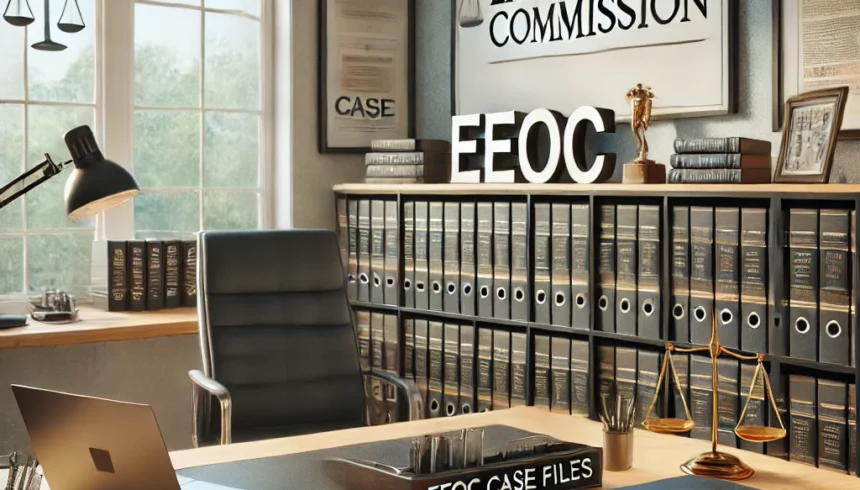
 By Evan Lange
By Evan Lange
Before proceeding, please review the legal disclaimer.
If you’ve experienced discrimination, harassment, or retaliation at work, you’re not alone—and you’re not powerless. The Equal Employment Opportunity Commission (EEOC) is the federal agency that investigates and enforces workplace discrimination laws. But navigating the EEOC process isn’t always easy. That’s where an experienced EEOC lawyer makes a major difference.
At The Lange Firm, we represent employees across Texas who have been mistreated at work due to their race, sex, disability, religion, or other protected status. In this article, we’ll explain how the EEOC process works, what an EEOC lawyer does, and how to give your case the strongest chance of success.
The EEOC (Equal Employment Opportunity Commission) is a federal agency that enforces anti-discrimination laws in the workplace. It oversees cases involving:
Race and color discrimination
Gender and pregnancy discrimination
Disability and medical condition discrimination
Sexual orientation and gender identity bias
Religious discrimination
Retaliation against whistleblowers or those who file complaints
Age discrimination (for employees 40+)
The EEOC is the first step in filing a federal discrimination lawsuit. In most cases, you must file with the EEOC before you can sue your employer.
An EEOC lawyer is an employment attorney who helps you:
Prepare and file your initial EEOC complaint
Respond to requests for documentation or interviews
Represent you during EEOC mediation
Negotiate settlements with employers
File a federal lawsuit after a Right-to-Sue letter is issued
Guide you through appeals if the case is dismissed
The Lange Firm supports employees at every stage—from reporting to resolution—so you’re not navigating the system alone.
You may file an EEOC complaint if you believe your employer took action against you based on:
Your race, ethnicity, or color
Your sex (including sexual orientation or gender identity)
Your national origin or citizenship status
Your religion or lack thereof
Your age (40+)
Your disability status
Your history of protected activity (e.g., reporting harassment)
You must typically file your charge within 180 days of the alleged violation, or up to 300 days if your state has its own anti-discrimination laws (like Texas).
You begin by submitting a Charge of Discrimination with the EEOC. This is a formal complaint that includes:
Who discriminated against you
When it happened
What evidence or witnesses you have
What you want as a resolution (reinstatement, back pay, etc.)
The Lange Firm helps clients draft strong charges with supporting documents and clear narratives.
The EEOC sends a copy of your charge to your employer within 10 days. Your employer must respond, and both sides may be invited to mediation.
If mediation fails or is skipped, the EEOC will open an investigation. This may include:
Interviews
Document reviews
Employer responses (called a “position statement”)
Requests for your rebuttal
Investigations can take 6 to 12 months or more.
The EEOC will either:
Issue a Letter of Determination, stating that discrimination likely occurred
Dismiss the charge
Issue a Right-to-Sue Letter, giving you 90 days to file a lawsuit in court
At this point, an EEOC lawyer can help you take your case to trial if needed.
Even if your charge is dismissed, you may still have legal options. With a Right-to-Sue Letter, you can file your own lawsuit in federal court within 90 days. Dismissal just means the EEOC chose not to pursue the claim—it doesn’t mean your case lacks merit.
You don’t have to hire a lawyer to file with the EEOC—but without legal help, many employees:
Miss key deadlines
Struggle to gather or present evidence
Accept unfair settlements
Get overwhelmed by employer legal teams
Hiring an EEOC lawyer increases your chances of:
Reaching a fair settlement
Proving your case with strong evidence
Protecting your job and career
Securing compensation for back pay, pain and suffering, and more
At The Lange Firm, we protect our clients from retaliation and help ensure their voice is heard.
If you win your case or settle, you may be entitled to:
Back pay and lost benefits
Reinstatement or promotion
Pain and suffering damages
Emotional distress compensation
Punitive damages (in extreme cases)
Attorney’s fees and court costs
Damages may be capped depending on the size of the employer, but your lawyer can help you maximize what you’re owed.
No—retaliation is strictly prohibited under federal law. If you’re fired, demoted, harassed, or given unfair evaluations because of your complaint, you can file a separate retaliation charge.
Retaliation is the most frequently filed charge at the EEOC.
At The Lange Firm, we:
Analyze whether your case qualifies under EEOC rules
File your complaint and gather evidence
Handle communications with the EEOC and your employer
Negotiate settlements and represent you at mediation
File lawsuits in state or federal court if needed
We serve clients throughout Texas, including Houston, Sugar Land, Dallas, Fort Worth, Austin, and San Antonio.
If you’re facing discrimination, harassment, or retaliation at work, you don’t have to fight alone. An EEOC lawyer from The Lange Firm can give you a voice, protect your job, and help you pursue justice.
📞 Call The Lange Firm today to schedule a consultation and learn how we can help you stand up for your rights with confidence.
Follow our newsletter to stay updated.

2025- The Lange Firm all rights reserved.

Mr. Evan B. Lange is the attorney responsible for this website. | All meetings are by appointment only. | Principal place of business: Sugar Land, Texas.
The information you obtain at this site is not, nor is it intended to be, legal advice. You should consult an attorney for advice regarding your individual situation. We invite you to contact us and welcome you to submit your claim for review. Contacting us does not create an attorney-client relationship. Please do not send any confidential information to us until such time as an attorney-client relationship has been established.
I need assistance with an ADA accommodation and discrimination within my company.
Hi Fawnya. Please contact us via emai info@evanlangelaw.com or call us at (713) 597-8369